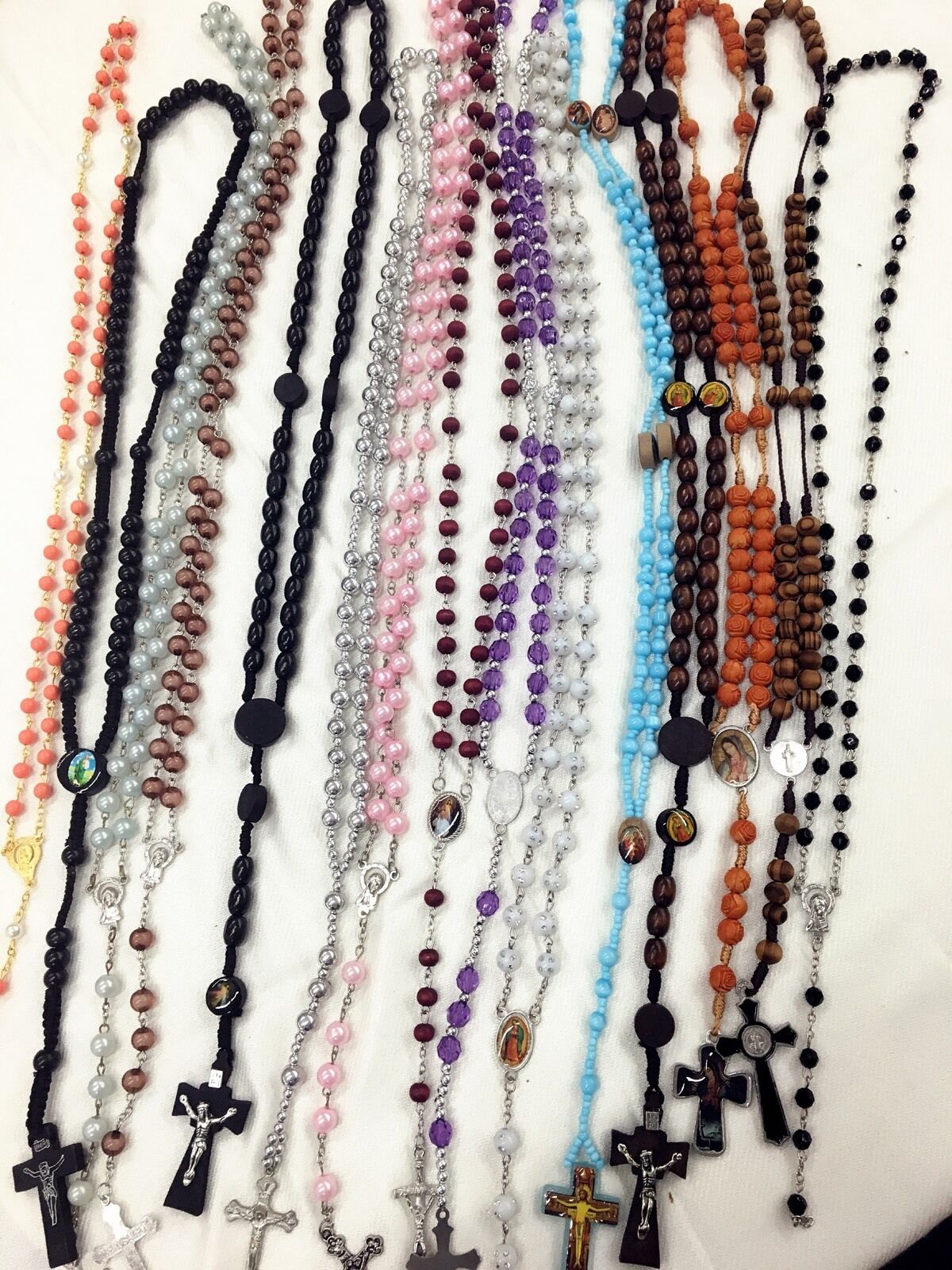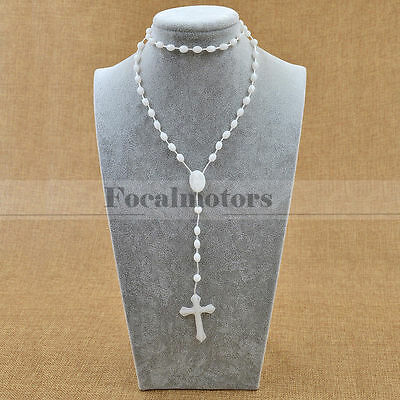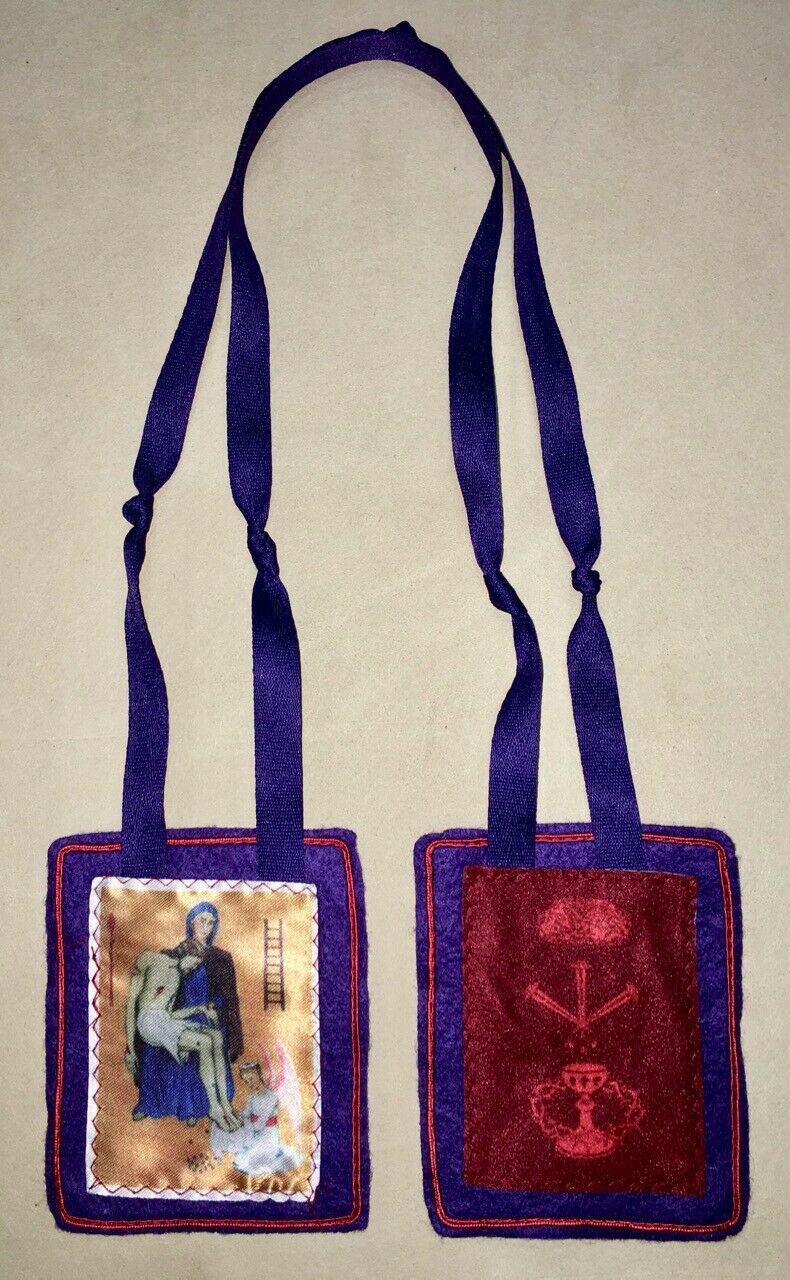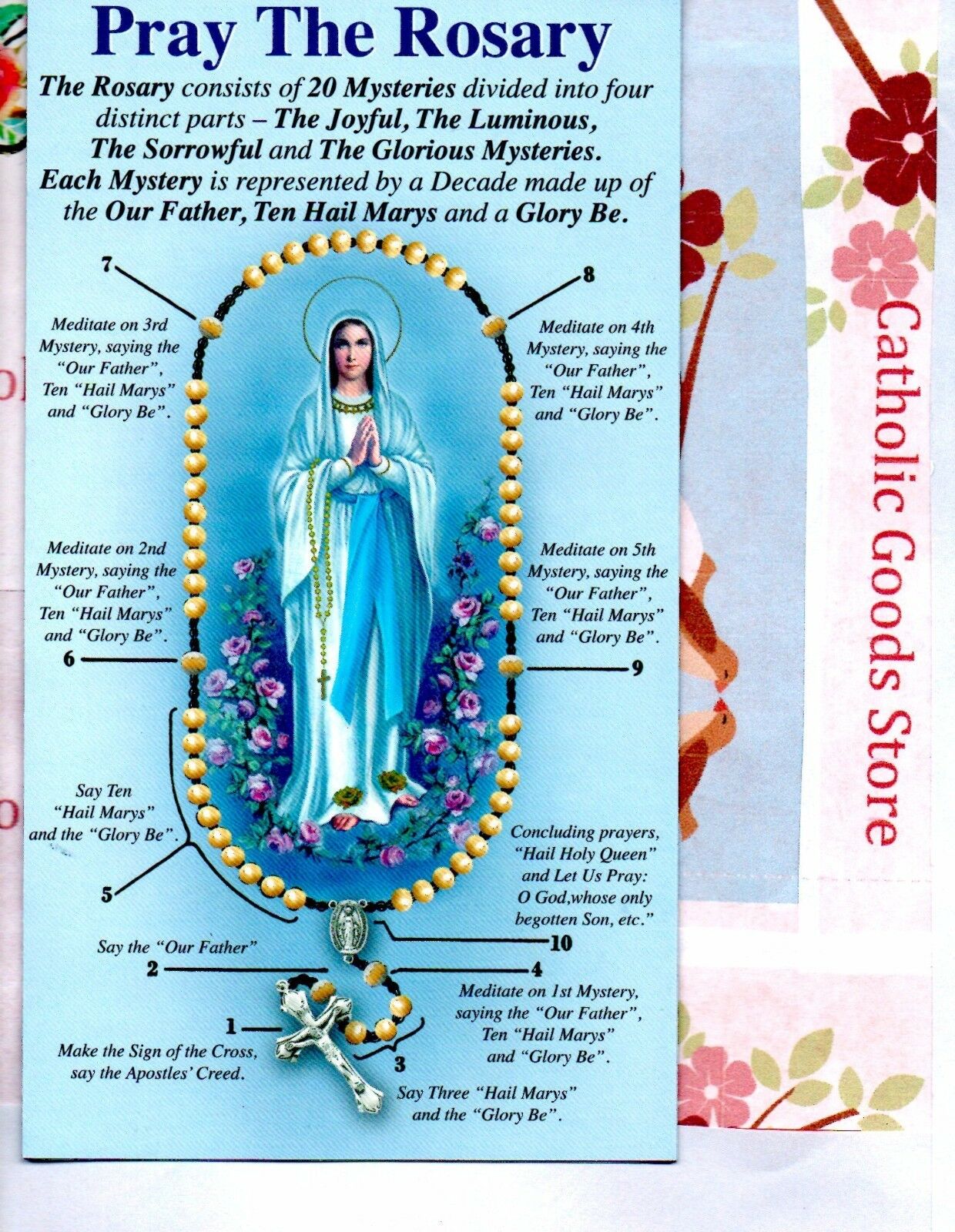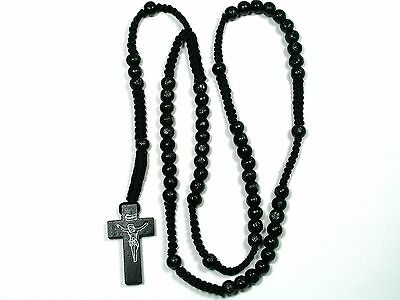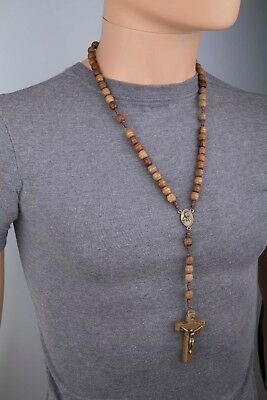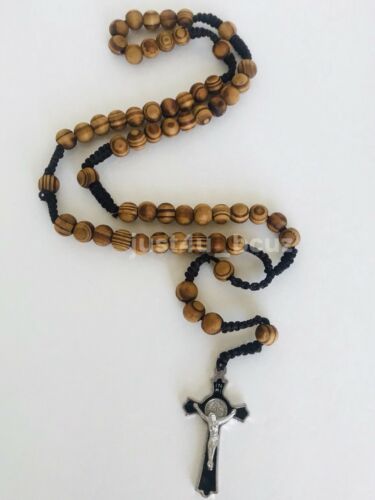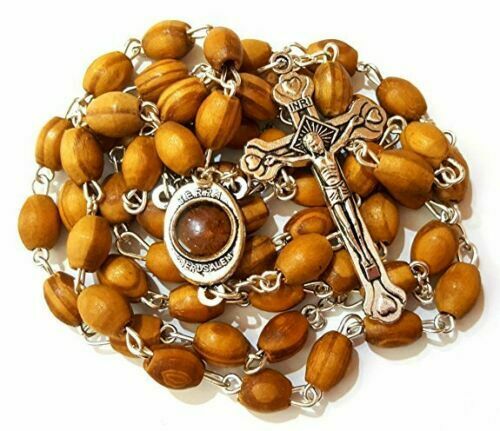-40%
Our Lady of Guadalupe Rosary. 14K Color Gold Plated. Rosario Virgen Guadalupe
$ 7.91
- Description
- Size Guide
Description
GOLD PLATED JEWELRYOur Lady of Guadalupe Rosary.
Gold Plated. 24" Long
Rosario de la Virgen Guadalupe Oro Laminado.
24" de largo
U.S. Seller: Shipping with tracking number.
We seek to do the best in our work, if there is any problems please let us know to fix it ASAP. God bless you!
A little bit of information :)
Our Lady of Guadalupe (Spanish: Nuestra Señora de Guadalupe), also known as the Virgin of Guadalupe (Spanish: Virgen de Guadalupe), is a title of the Blessed Virgin Mary associated with a Marian apparition and a venerated image enshrined within the Minor Basilica of Our Lady of Guadalupe in Mexico City.
The rosary beads provide a physical method of keeping count of the number of Hail Marys said as the mysteries are contemplated. The fingers are moved along the beads as the prayers are recited. By not having to keep track of the count mentally, the mind is free to meditate on the mysteries. A five-decade rosary contains five groups of ten beads (a decade), with additional large beads before each decade. The Hail Mary is said on the ten beads within a decade, while the Lord's Prayer is said on the large bead before each decade. A new mystery meditation commences at each of the large beads. Some rosaries, particularly those used by religious orders, contain fifteen decades, corresponding to the traditional fifteen mysteries of the rosary. Both five- and fifteen-decade rosaries are attached to a shorter strand, which starts with a crucifix, followed by one large bead, three small beads, and one large bead, before connecting to the rest of the rosary.
A five-decade rosary consists of a "total" of 59 beads.
...en su camino la virgen le salió al encuentro (cuarta aparición) y le explicó la situación de su tío. A esto respondió la Virgen María:
"Oye y ten entendido, hijo mío, el más pequeño, que es nada lo que te asusta y aflige; no se turbe tu corazón; no temas esa enfermedad ni otra alguna enfermedad y angustia. ¿No estoy yo aquí, que soy tu madre? ¿No estás bajo mi sombra? ¿No soy yo tu salud? ¿No estás por ventura en mi regazo? No te apene, ni te inquiete otra cosa; no te aflija la enfermedad de tu tío, que no morirá de ella: está seguro de que ya sanó".
La corona del rosario (o camándula, como se le conoce en algunos países) está formada por 50 cuentas en grupos de 10 (conocidos como «decenas»), con una cuenta más gruesa entre cada decena, o bien una cuenta algo más separada de las de las avemarías. La ristra se cierra en sus extremos, enganchándose éstos simplemente, o a una placa de intersección. La placa suele tener forma triangular o semejante, con el vértice hacia abajo, del que, por lo general (pero no siempre, sobre todo en rosarios antiguos) sale un tramo de comúnmente cinco cuentas (1, 3, 1), siendo algo mayores las extremas, como las de los padrenuestros. De la última sale un enlace del que cuelga un Crucifijo, o una cruz (frecuente en la antigüedad, desde el siglo XVIII hacia atrás). Antiguamente se usaba también una medalla en vez de la Cruz. Estas cinco cuentas pueden simbolizar las cinco llagas de Jesucristo y se utilizan para las oraciones adicionales rezadas antes, o bien después de los misterios.




